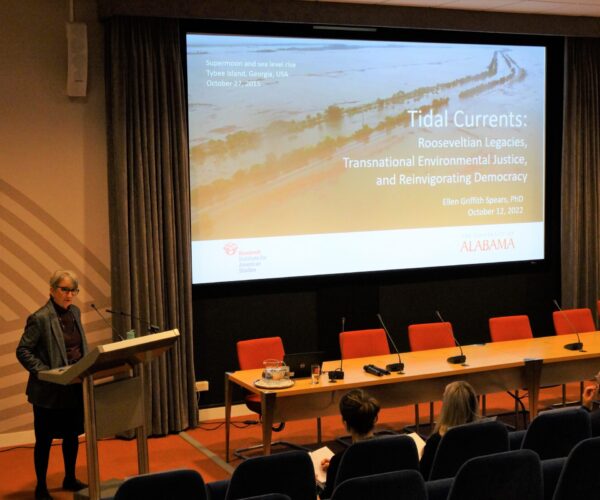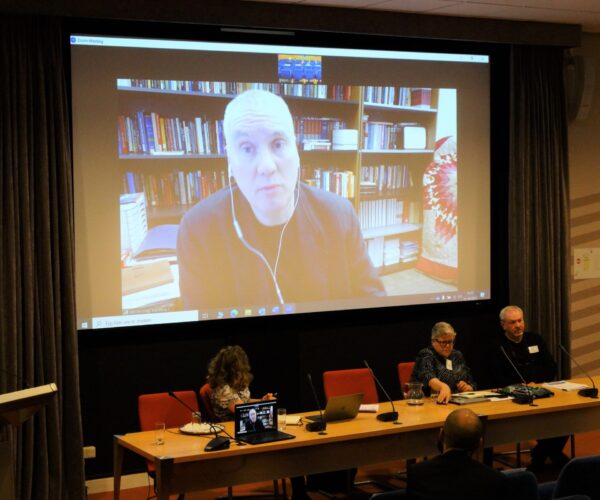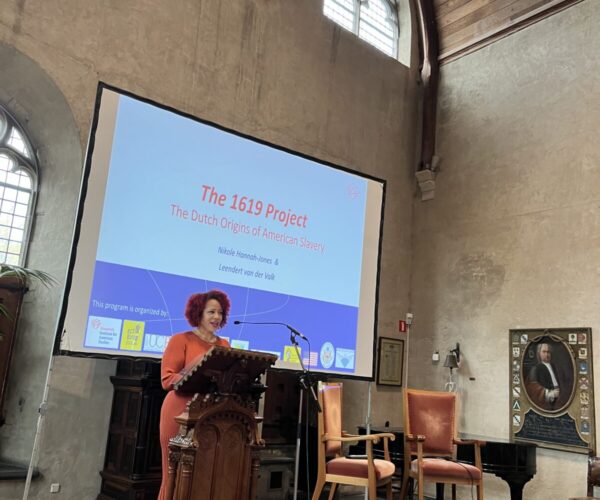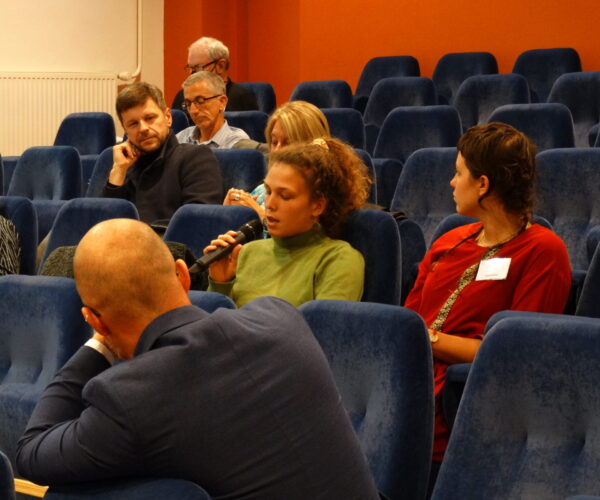Between the 12th and 14th of October 2022, the RIAS hosted a major academic conference that brought together a wide range of scholars to discuss key episodes, theories, and practices of environmental justice in American history.
The conference was organized on the 40th anniversary of the 1982 protests against a PCB landfill in Warren County, North Carolina, which scholars and activists have generally recognized as the starting point of the modern environmental justice movement, as an opportunity to explore and reflects on the experiences of disadvantaged groups and marginalized communities plagued by toxic pollution, and the efforts of the scholars and researchers that worked to patterns of environmental injustice and discrimination.
The study of these issues – and how the United States has affected them – has generated an extensive interdisciplinary body of research in both humanities and social sciences. Historians, sociologists, political scientists, and many others working on questions of environmental justice have produced eye-opening accounts of the conditions in which many American residents lived (and continue to live) and their struggle for recognition and inclusion. The conference aimed to assess the state of the field, identify some of its most fruitful developments, and lay out some of the challenges likely to be faced over the coming years. And, in pursuit of this agenda, the event was more than a success.

The conference’s program included fifteen presentations on various environmental justice-related topics, bookended by two keynote addresses. Professor Ellen Griffith Spears (University of Alabama) set the tone for the proceeding days with her opening lecture, Tidal Currents: Rooseveltian Legacies, Transnational Environmental Justice, and Reinvigorating Democracy, in which she provided a comprehensive and rich overview of the origins, key developments, and challenges of the environmental justice movement and scholarly field.

From there, the conference moved into the five panels entitled, respectively, ‘Toxic Landscapes’, ‘Narratives and Actors’, ‘Forms of Resistance’, ‘Critical Perspectives’, and ‘Policies and Legacies of Exclusion’. Throughout the five sessions, the socio-environmental aspects, costs, and legacies of issues such as raw materials and natural resources extraction, processing, and disposal; urban planning and redlining; and infrastructural projects were presented and discussed in further detail over the course of the Q&A’s that concluded each panel. Further conveying the truly multi-dimensional and multi-disciplinary aspects of the environmental justice field, the conference also benefited from the presentations of literary scholars who demonstrated the contributions of literary scholarship and theory to the field.
Through the panels and exchanges in the three conference days, speakers and participants reflected on the inextricably interconnected issues of the environment, public health, and epidemiology – only all the more topical now given the context of the COVID 19 pandemic – and mapped patterns of environmental injustice. The papers highlighted how the brunt of environmental degradation has consistently fallen upon the most vulnerable and marginalized in society, who themselves tend to be lower income earners and/or people of color and confirmed that among those most bearing the iniquitous consequences of environmental destruction and climate change are the indigenous peoples of the United States.

The conference program also included a public lecture by the founder of the 1619 Project and New York Time Magazine Pulitzer Prize-winning journalist, Nikole Hannah-Jones on 1619 Project and the Dutch Origins of American Slavery. The event, which was organized by the RIAS and the Kennisplatform Slavernijverleden Zeeland (Zeeland Platform for the History of Slavery and Freedom) for Black Achievement Month, took place in the setting of the Town Hall of Middelburg, where Hannah-Jones spoke about the continued legacies of slavery and the need for reparations, before turning to a conversation with Dutch journalist Leendert van der Valk.
Following Nikole Hannah-Jones’s public lecture, the participants of the environmental justice conference were invited to attend a dinner talk by Dr. Daphina Misiedjan (Assistant Professor in Human Rights and the Environment at Erasmus University Rotterdam), titled Separate but Equal in the Protection against the Climate Change. Throughout the course of her speech, Dr. Misiedjan provided an essential and insightful overview of the dilemmas and issues facing former and current Dutch possessions in the Caribbean given the contexts of climate change, rising sea levels, and the ambiguities of their constitutional relationships to the Kingdom of the Netherlands, which seems only to exacerbate the existing challenges.

The conference ended with a closing keynote by Martin V. Melosi, Professor Emeritus at the University of Houston, entitled Defining Environmental Justice: Is it Too Broad or Too Narrow?. The keynote stimulated an invaluable discussion on the merits of a narrower versus broad, expansive conception of environmental justice and served as a great conclusion to the conference, which confirmed the importance of an environmental justice field that continues to expand, innovate, and flourish as the means most suitable to meet the highly uncertain environmental future we all face over the coming years.
The RIAS thanks the conference’s main sponsors, the US Embassy in the Hague and Provincie Zeeland, for their generous support, all the speakers and attendees for their participation and insights – and looks forward to many more generative conversations on the subject.



